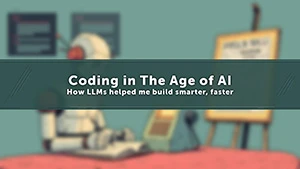
Image credit: Derivative based on background design by Freepik
Originally appeared in LinkedIn Future Singularity
You've probably heard about quantum computers and how they will be super powerful and change everything. But what are quantum computers? And what can they really do better than today's "normal" computers? Let's break it down in a way that's easy to understand.
Everyday computers that process information employ small electrical transistors that represent 1s and 0s in their calculations. A quantum computer, on the other hand, is unique in that it calculates in a whole new way by utilizing the bizarre ideas of quantum mechanics.
Understanding Quantum Computing
To understand quantum computers, we first need to quickly cover some basics of quantum mechanics. The bizarre laws governing the behavior of the universe's smallest particles are explained by quantum mechanics. Particles can exist in a "superposition" of states simultaneously, which is one important idea. An electron, for instance, has simultaneous clockwise and counterclockwise spin!
Things act substantially differently in the quantum world than they do in our everyday environment. Consider the well-known double-slit experiment, in which a particle beam is directed at a barrier with two slits, and each particle passes through both slits simultaneously! On the other side of the barrier, a strange pattern develops as a result of the particles' self-interference. When these particles are not disturbed, they exist in a "superposition" that symbolizes every conceivable route they could travel through the slits. However, as soon as we examine or quantify their movements, the superposition breaks down into a single path!
Qubits: The Building Blocks of Quantum Computers
How then do quantum computers function in practice? As an alternative to conventional electronic bits that represent 1s and 0s, they employ quantum bits, or "qubits." We just covered the idea of quantum superposition, which allows a qubit to simultaneously represent 1 and 0.
An enormous number of states can be simultaneously occupied by a system consisting of only a few hundred entangled qubits, as every extra qubit doubles the number of possible superposition states! The potential computing capability of quantum computers that they can execute calculations in parallel thanks to this interconnectivity, which dramatically expands their processing power.
What Can Quantum Computers Actually Do?
After decades of research, scientists have found a few key types of problems where quantum computers could hugely outperform classical computers:
- Breaking encryption codes: A well-known quantum technique exists that can factor large numbers very quickly, which is the foundation of most modern internet encryption. This would make it possible for spies and hackers to break encryption that would take traditional computers ages to decipher.
- Simulating quantum systems: Quantum computers should be able to simulate and describe quantum chemical reactions, novel materials, and more with previously unheard-of accuracy since they function according to quantum laws. Significant advances in chemistry, materials science, and other fields may result from this.
- Some optimizations and search problems: Quantum computers appear to offer some speedups over classical methods for some complicated optimization scenarios, such as code-breaking, scheduling, and machine learning, but not the large exponential speedups that were previously projected.
Accordingly, those three areas are where the actual benefits lie, despite the fact that quantum computers won't immediately solve all of our issues a million times faster based on our existing understanding.
Limits of Quantum Computing (So Far)
It turns out that creating a large, dependable quantum computer is far more difficult than creating a classical computer. Due to their great fragility, even seemingly little events like thermal vibrations or stray electromagnetic radiation can disturb a particle's precise quantum state.
Advanced quantum error correction codes are required to account for these inevitable flaws; yet, their implementation necessitates nearly flawless qubits, with error rates less than one in ten thousand. Scientists have just recently begun to approach that degree of precision over a small number of qubits.
The fact that many possible quantum algorithms only speed up a portion of the entire problem poses another significant barrier. For instance, you could be able to optimize a neural network on a quantum computer by using a shortcut, but you would still need to use classical hardware to process the training set of data. These hybrid quantum-classical methods lessen the benefits.
The most widely promoted benefit of quantum computers - being able to try all possible solutions simultaneously - also turns out to be incorrect. When you read out the final answer, the quantum behavior collapses, and you don't maintain any knowledge of the other potential solutions. There's no way to just automatically grab the best answer like magic.
So Where Are We Now?
We've obviously made a lot of incredible progress toward quantum computing after decades of work. However, it still looks years or decades away from really creating a sizable, all-purpose quantum computer that can be designed to tackle real-world issues.
Shorter term, we can now show off straightforward "quantum supremacy" tests that can beat classical computers - but only on specially designed tasks that have no real-world implications - yet. Top corporations including Google, IBM, and others have developed devices with approximately 100 qubits, which can sample from specific probability distributions more quickly than the state-of-the-art supercomputers.
Looking ahead just a few years, we may see the first useful applications in quantum chemistry and materials simulation, where quantum computer could provide limited but insightful shortcuts over classical techniques. Additionally, academics are working hard on practical applications like validating process randomness or possibly improving machine learning models.
But the dream of a general-purpose quantum computer that makes today's devices totally obsolete still seems a long way off until we develop better quantum error correction and scalability. It's an immense challenge - but the laws of quantum physics say it is possible, and countless scientists are working hard to turn this potential into reality.
Quantum Computing and AI
It's critical to understand that artificial intelligence and classical computing are not meant to be replaced by quantum computing. Rather, it enhances already-existing technologies by providing a distinct range of functions that are superior in specific areas.
Even while artificial intelligence (AI) and classical computers are still essential, quantum computing adds a new level of processing power that allows us to solve issues that were thought to be unsolvable. Through leveraging the complimentary capabilities of both classical and quantum computing, scientists and engineers can open up new directions for research and development.
Preparing for the Quantum Era
It is essential to develop quantum literacy and preparedness as we approach the era of quantum computing. There are many resources available for those who want to learn the principles of quantum computing so they can use it to their advantage and realize its revolutionary potential.
The resources required to study quantum computing are become easier to obtain, ranging from simulators and online courses to tools for quantum programming. Universities and research facilities are also training the next generation of scientists and engineers for the opportunities and challenges that lie ahead by providing specific courses and programs in quantum information science.
Looking Ahead
The era of quantum computing is upon us, offering a future in which seemingly impossible tasks become commonplace. However, achieving this goal will need for coordinated action and multidisciplinary cooperation.
We may confidently and eagerly welcome the quantum future if we keep pushing the limits of quantum science and arm ourselves with the required knowledge and abilities. By working together, we can fully realize the promise of quantum computing and usher in a new era of research and development.


